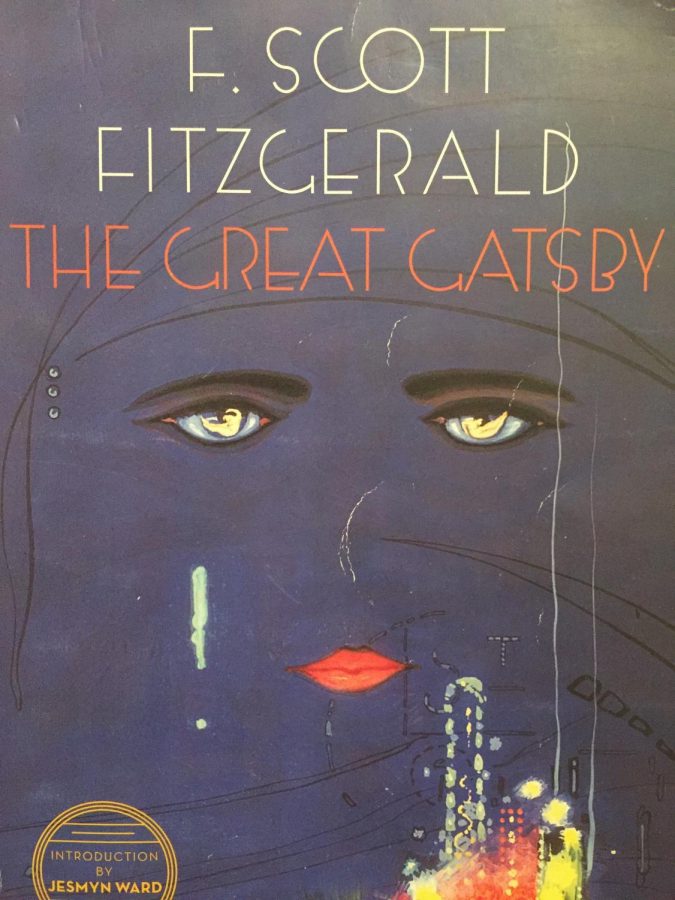PDS Required English Books: Ranked
May 1, 2020
The PDS English Department offers an incredibly rich curriculum, with an array of meaningful books to accompany. Read on to find out the top six PDS student fan favorites!
- The Namesake
This summer reading book for sophomores explores themes of family, journey, and self-discovery. As the main character Gogol, struggles with his identity, many of us are able to see hints of ourselves—from teachers struggling to pronounce our names, to feeling out of place with our families, to not knowing where we truly belong. As junior Disha Bhowmick put it, “I’d say Namesake would be my favorite because I’m Bengali and the main character is Bengali so the descriptions in the book and the identity crisis, I could relate a lot.”
- Siddhartha
While some might find Hermann Hesse’s Siddhartha strange and difficult to understand, it provides its readers with valuable lessons and deep spiritual and religious understanding. As sophomore Mehak Dhaliwal put it, “Siddhartha was really inspiring, it talked a lot about India and Indian culture: it didn’t touch upon just a traditional white society, but had lots of elements of eastern culture… In addition, there were a lot of good lessons in the book, and overall, I think Siddhartha is the most meaningful out of all the books we’ve read, and I really understood it because I have a more personal experience and understanding of eastern philosophy and culture”. Another student commented that Siddhartha “was a really eye opening book, and it got me interested in Hesse and led me to explore and think about the spiritual side of things. I’ve been learning about buddhism and spirituality ever since then, like in The Razor’s Edge and in The Alchemist.”
- Othello
This Shakespearan masterpiece, with its seemingly-straightforward yet intricate characters, will definitely leave many in awe. Especially in the movie-play rendition of it, Othello becomes a meaningful asset to the English classroom. freshman Hannah Park pointed out,
“I don’t normally get the chance to read plays, so it was a push out of my comfort zone that allowed me to experience new literature. I like Shakespeare’s multi-layered characters and hidden cultural themes.”
- Song of Solomon
Song of Solomon might come off as an odd choice to people who have just started reading it. With its unique descriptions and odd themes, it is hard to get used to the novel’s language and events. But once you really get into the book, its intricate language and chilling plot will definitely pull you in, and leave you wanting more by the end. As a junior pointed out, “I just thought stylistically it was the most well written book out of everything we have read, and thematically I could really connect with it. It also had some of the most interesting and well developed characters out of anything we’ve read.”
- Purple Hibiscus
Purple Hibiscus is another book that deals with issues of personal development and identity, enveloped by themes of family, violence, and religion. It is hard not to feel sympathetic towards Kambili’s family as they suffer through the extreme and impossible expectations of their controlling father. “I have liked Purple Hibiscus the best because it has so far been the most attention grabbing and the most empowering. I like the way we see Kambili’s inner struggles to find her place in the world and in her family and how she’s trying to navigate her way through both her father’s religion and her grandfather’s religion,” freshman Zoe Latanision stated.
- The Great Gatsby
Last but far from the least, with over a hundred votes, Fitzgerald’s timeless novel The Great Gatsby grabbed the most hearts. This jewel of the Roaring Twenties, with its memorable characters, near-perfect use of language, and lavish, other-worldly party scenes, will never fail to catch a readers’ attention. Sophomore Eleanor Ding complimented the novel by stating, “I loved the way Fitzgerald could string together words in little turns-of-phrase that could be both paradoxical and beautiful. I also really liked the characters [in the book]. They might have been awful people, but they were certainly interesting awful people. Nick’s inner monologue, while mild and civil on the surface, always felt as though it was hiding something; Gatsby’s obsessive love and desire to go back to the past were at once tragic and terrible; Daisy was shallow yet also ultimately a little sad. Finally, I liked it because it was short but sweet. It’s a dense book, but also really easy to read.” On a similar note, junior Madison Sings comments that “The Great Gatsby has managed to remain relevant years after it was published, and I think that is for a good reason. The characters are all nuanced and there are so many ways to interpret the book in a modern light — was Nick in love with Gatsby? Was Daisy actually a victim in her own right?” Whether or not you have high expectations going into The Great Gatsby, Fitzgerald definitely will not disappoint!








